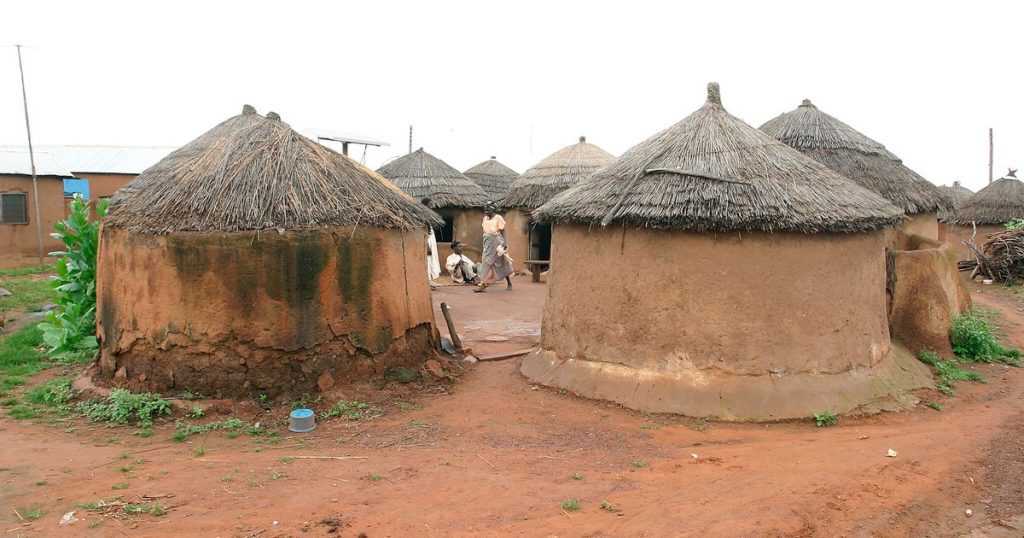Recent reports indicate a troubling trend of human rights abuses against individuals accused of witchcraft in Ghana, particularly targeting older women. Despite the parliament’s efforts to legislate against such accusations, the law is yet to be enacted. Activists stress the urgency for governmental intervention, as many vulnerable individuals face violence, displacement, and severe social stigmas driven by unfounded allegations.
| Article Subheadings |
|---|
| 1) Rising Incidents of Witchcraft Accusations |
| 2) Impact of Accusations on Victims |
| 3) Government Response and Legislative Efforts |
| 4) Broader Implications Across Africa |
| 5) The Need for Social Change |
Rising Incidents of Witchcraft Accusations
In Ghana, accusations of witchcraft have surged, predominately affecting older women who are often marginalized within their communities. The origins of these allegations frequently lie within family and community dynamics, especially following adverse events such as illness or the death of a loved one. Amnesty International has reported that these accusations can lead to violence, including physical assaults and, in extreme cases, murder. The societal belief in witchcraft is deeply rooted, and despite modernization, many segments of the population hold onto these traditional views, making it essential to analyze the underlying causes of such beliefs and their consequences.
Impact of Accusations on Victims
Victims of witchcraft accusations endure significant psychological and physical harm. The majority of those targeted are older women who face ageism, poverty, and health challenges. These factors compound their vulnerability, increasing the likelihood of being accused when a community faces hardships. Accusers often base their claims on unfounded personal grievances, sometimes claiming to have experienced nightmares involving the accused. Women who fail to conform to traditional gender expectations are also particularly at risk. The repercussions are dire; accused individuals frequently find themselves ostracized, forced to flee their homes, and living in makeshift camps or shelters, relying on the charity of traditional leaders.
Government Response and Legislative Efforts
Despite the alarming statistics and dire conditions faced by accused individuals, progress towards legislative change has been slow. In 2023, the Ghanaian parliament passed a bill aimed at criminalizing witchcraft accusations and related ritual attacks. However, this bill has not yet been signed into law, leaving many vulnerable individuals without legal protection. Advocacy groups, including Amnesty International, urge immediate legislative action, alongside sensitive awareness campaigns to educate communities about human rights and the baseless nature of witchcraft allegations. Officials must act decisively to implement strategies that offer protection and support to those at risk.
Broader Implications Across Africa
The issue of witchcraft accusations is not confined to Ghana; it extends to various regions across Africa. In neighboring nations, such as Zambia and the Democratic Republic of Congo, similar incidents have occurred, with individuals being violently punished based on witchcraft allegations. These occurrences highlight a pervasive cultural problem that gives rise to human rights violations. For example, in Guinea Bissau, women accused of witchcraft were forced to ingest poison, resulting in tragic fatalities. These incidents underline the urgent need for a concerted effort across borders to tackle this issue and foster a global dialogue regarding the rights of the marginalized.
The Need for Social Change
To address the deep-rooted belief in witchcraft and mitigate subsequent abuses, a multifaceted approach is required. Education is key; communities must undergo reforms encouraging critical thinking and compassion towards the elderly and vulnerable populations. Campaigns aimed at informing individuals about the consequences of spreading false accusations could help in reducing instances of violence. Collaboration between government bodies, non-profit organizations, and community leaders is crucial to create a network of support for those affected and to cultivate an atmosphere that discourages witchcraft accusations entirely.
| No. | Key Points |
|---|---|
| 1 | Witchcraft accusations primarily target older women in Ghana, leading to severe human rights abuses. |
| 2 | Amnesty International reports that the legislative measures against witchcraft accusations are insufficiently implemented. |
| 3 | Cultural beliefs in witchcraft are deeply entrenched, complicating efforts to reform social attitudes. |
| 4 | Accused individuals often face violence and are forced to live in camps away from their communities. |
| 5 | Calls for comprehensive educational and legislative reforms to protect vulnerable populations have intensified. |
Summary
The ongoing crisis surrounding witchcraft accusations in Ghana highlights a significant gap in legal protections and socio-cultural reform. Despite recent parliamentary progress, the absence of enforcement leaves many vulnerable individuals exposed to violence and stigmatization. Addressing this issue requires a holistic approach that encompasses legislative action, community education, and grassroots activism to combat ageism, gender bias, and poverty. Collaborative efforts are crucial to ensure the rights and safety of those at risk of witchcraft-related abuse.
Frequently Asked Questions
Question: What are witchcraft accusations?
Witchcraft accusations involve labeling individuals as witches based on unfounded beliefs, often leading to violence, ostracism, and severe human rights abuses.
Question: Why are older women particularly at risk?
Older women are often marginalized due to societal ageism, poverty, or health issues, making them prime targets for accusations during difficult community events.
Question: What legislation is being discussed to protect accused individuals?
The Ghanaian parliament has proposed legislation aimed at criminalizing witchcraft accusations and ritual attacks, but it has not yet been enacted.


